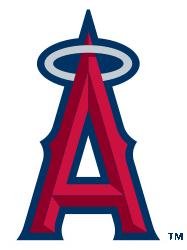Quiz Answer Key and Fun Facts
1. This player, the first World Series MVP in Angels history, was not offered a contract by the Angels after the 2004 season. The team instead preferred to give playing time to up-and-coming Dallas McPherson.
2. This Angel left after the 2002 season, but hardly anyone noticed. He was acquired in the middle of 2002 for Jorge Fabregas, and his main role was as a defensive replacement for Tim Salmon late in ballgames. After only 70 ABs in all of 2002, he left Anaheim and signed with St. Louis as a free agent.
3. This reliever recorded over 300 saves with the Anaheim Angels. While he was often in the spotlight during the 2002 playoffs, the 2004 playoffs were not as kind to him. He was not called to throw a single pitch for the Angels during those playoffs.
4. This fan favorite was acquired off waivers from Boston in 2001. Despite his .300 career postseason batting average and solid fundamentals, he was not offered a contract after the Angels signed Orlando Cabrera following the 2004 season.
5. This Angel split time with Adam Kennedy at second base throughout the 2002 season. After seeing vastly reduced playing time in the 2003 season, he left Anaheim and made stops in Cleveland, Colorado, Chicago, Detroit, and Seattle.
6. This Angels pitcher, who was 2-0 in the 2002 playoffs despite a 9.00 ERA, demanded a trade after being discouraged with his demotion to the bullpen in 2004. After the 2004 season, the Angels obliged, sending him to Cincinnati for minor leaguer Dustin Moseley.
7. This pitcher signed right before the 2002 season, battled arm problems throughout his three years as an Angel. He was only able to manage 24 wins in those three years and did not pitch for the Angels at all in the 2002 or 2004 playoffs. After the 2004 season, he signed with the team he left in 2002.
8. Acquired in January 2002 for Brian Cooper, this Angel provided some much needed power to the lineup; he was 2nd on the team in slugging percentage in the 2002 regular season. Midway through 2003 he suffered a leg injury which sidelined him for the rest of the season. After the 2003 season, he left Anaheim as a free agent and signed with another AL West team.
9. This pitcher, who did not win a single playoff game in 2002, was acquired from the Mets prior to the 2002 season. He performed well for the Angels in 2002, going 14-12 with a 3.92 ERA. It all changed in 2003 though. A decline in performance as well as a strained relationship with management led to the Angels realeasing him. He would sign later that season with the Kansas City Royals.
10. This Angels pitcher only started six games in 2002 and was left off the postseason roster. He was primarily used as a replacement for the injured Aaron Sele and didn't do too badly, going 2-1 with a 4.19 ERA. His biggest moment of 2002 came against Boston, where he matched opposing pitcher Derek Lowe by giving up only three runs in six innings.
11. This bench player saw his time in the sun during game four of the 2002 ALDS. Given a chance to start at DH, he went three for four with three runs, two RBI, and the home run that tied the game and kicked off Anaheim's eight run inning. While this player saw increased playing time in 2003 due to all the injuries, he was never able to recapture that ALDS gaem four magic and was not offered a contract by Anaheim after the 2003 season. He ended up signing with Philadelphia for the 2004 season.
12. Most talk around this infielder dealt with his band, not his playing abilities. Still, he will always be remembered in Anaheim for his key World Series home run. He also holds the distinction of being one of only two Angel regulars to remain healthy throughout the 2003 season.
13. The Angels found this reliever on waivers in 2000. Despite his struggles in the NL, he immediaely paid dividends for Anaheim with four straight years with an ERA under 3.50. But in 2004 it all fell apart: he posted an ERA over 8.00 in both the MLB and AAA and found himself optioned to single A. In December of 2004, he left Anaheim and signed with Cincinnati.
14. This pinch-hitting specialist spent the better part of five seasons coming off the bench for the Angels. Known as a slap-hitter who excelled at getting on base, this Angel was unusually quiet in the 2002 playoffs, getting only one double in the 6 games he appeared in. Still, this player managed a .281 avg and a .361 obp mostly pinch hitting for the Angels over five years, not bad for a 33rd round pick. After 2002, he left Anaheim and signed with St. Louis, where he played for a season before joining Houston in 2004.
15. This Angels pitcher was also unhappy with his demotion from the rotation to the bullpen in 2002. He stuck with the team in the bullpen throughout 2002 and usually was saved to face difficult left-handed batters. This would make sense since he was the only left-handed reliever the 2002 Angels bullpen had. Midway through 2003, he finally got sick of relieving and demanded a trade. The Angels obliged, trading him to the White Sox, where in 2004 he started 19 games and put up a 6-9 record with a 5.59 ERA.
Source: Author
icono68
This quiz was reviewed by FunTrivia editor
Nightmare before going online.
Any errors found in FunTrivia content are routinely corrected through our feedback system.
